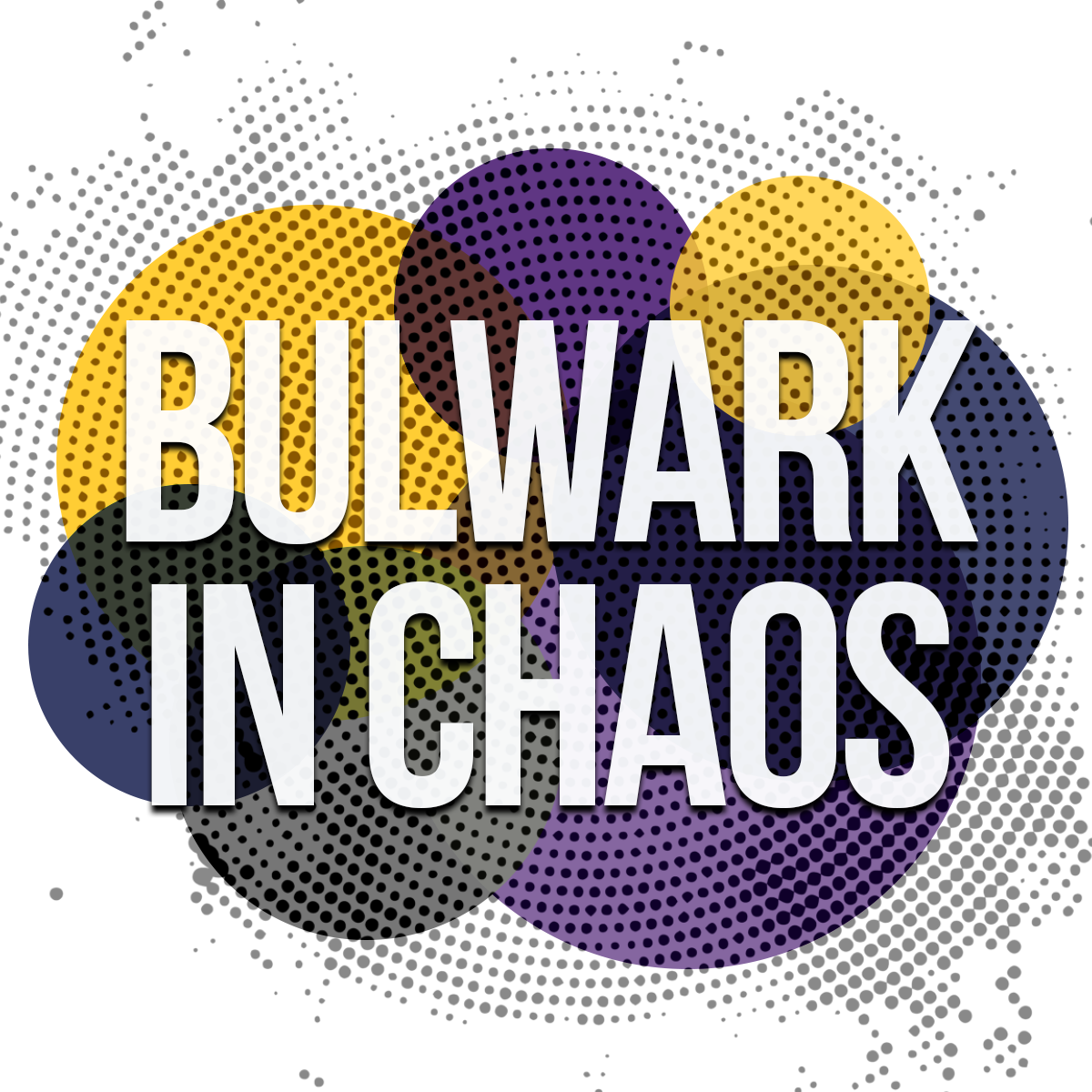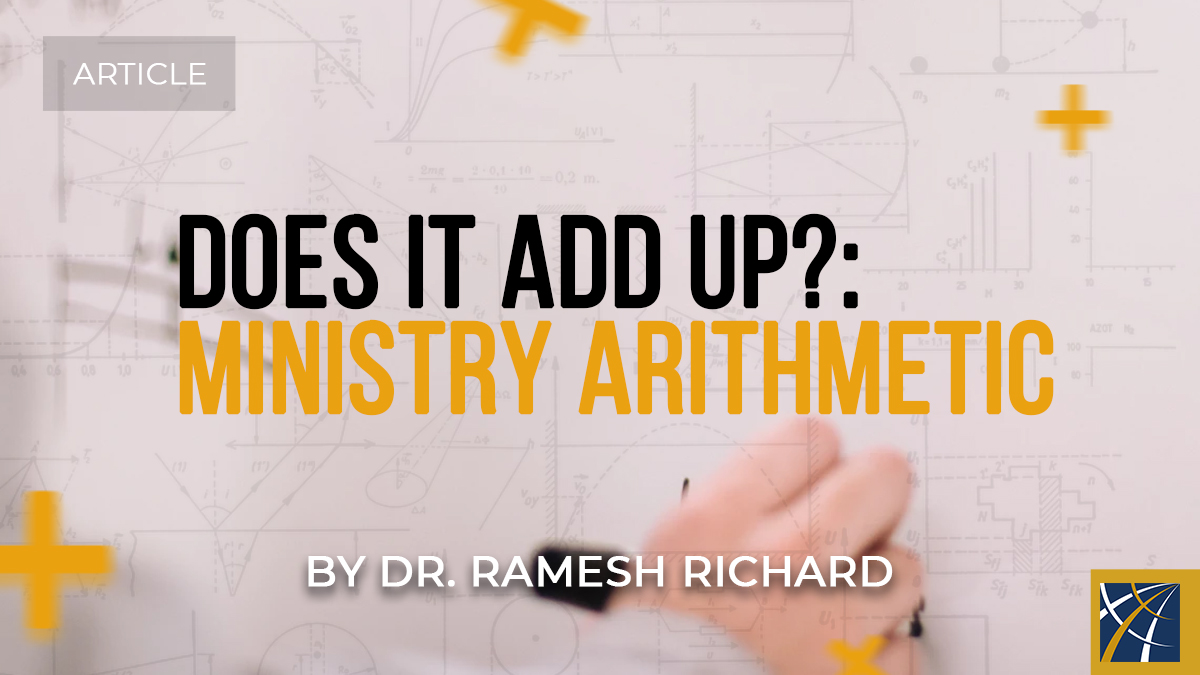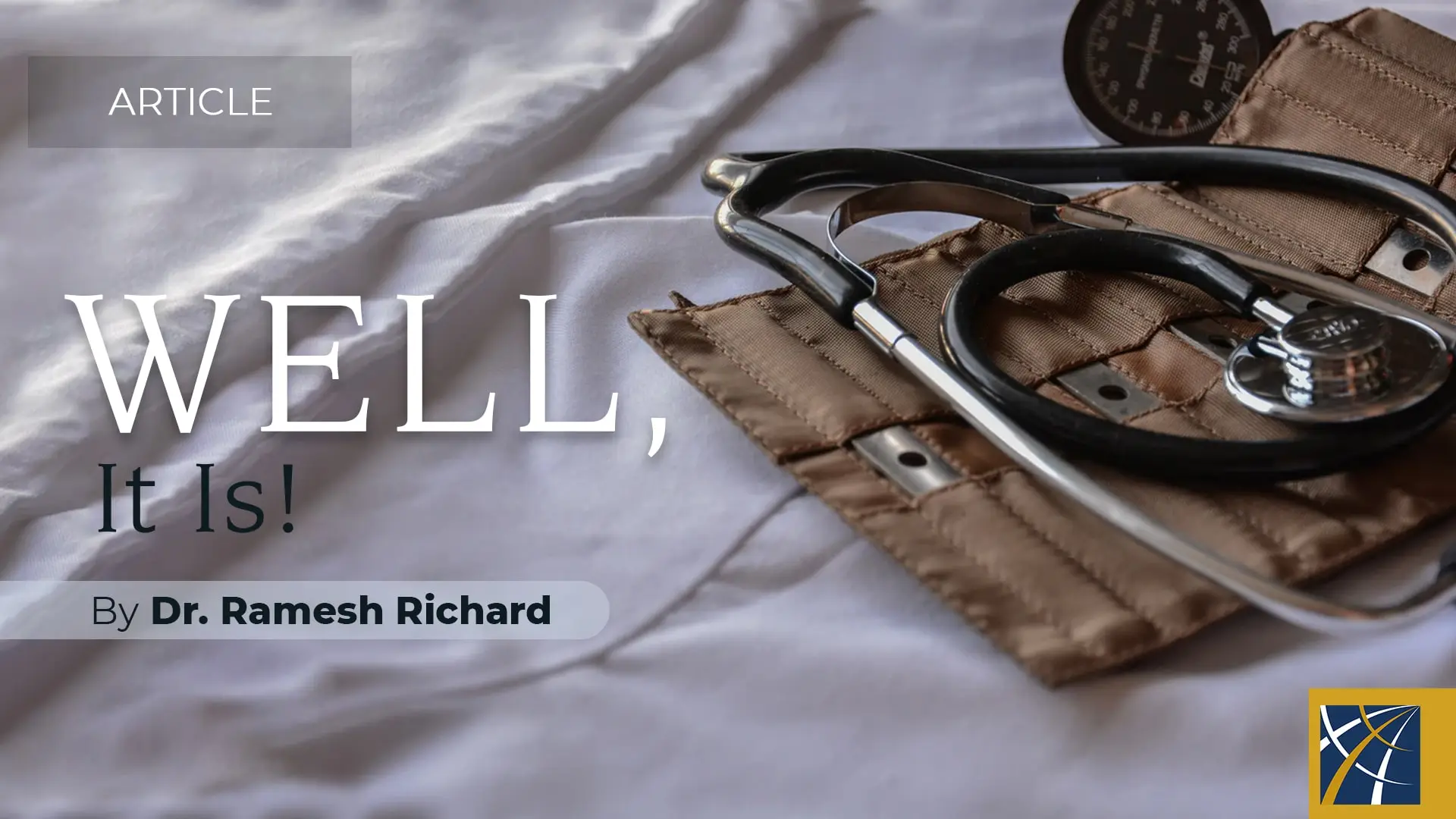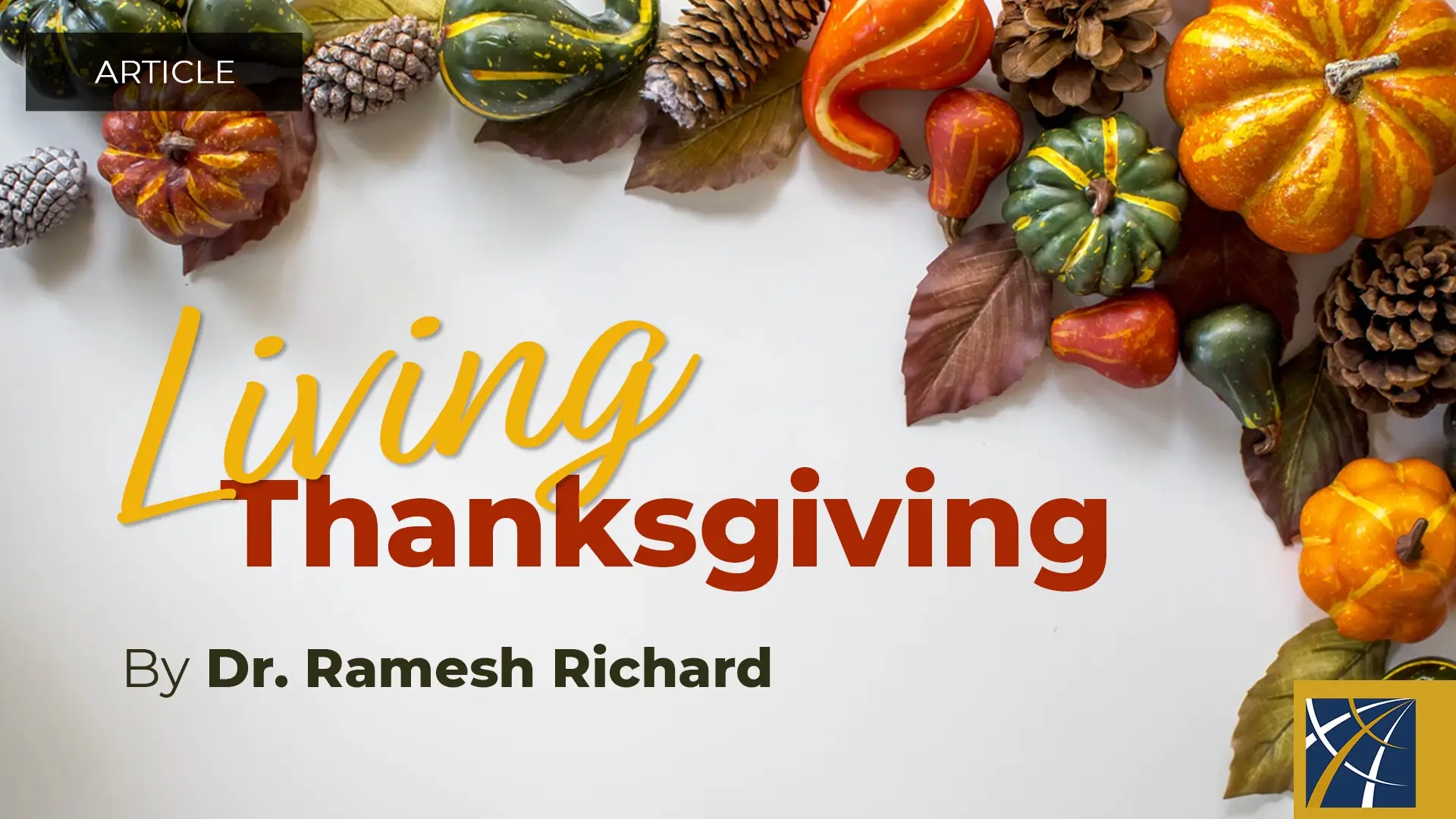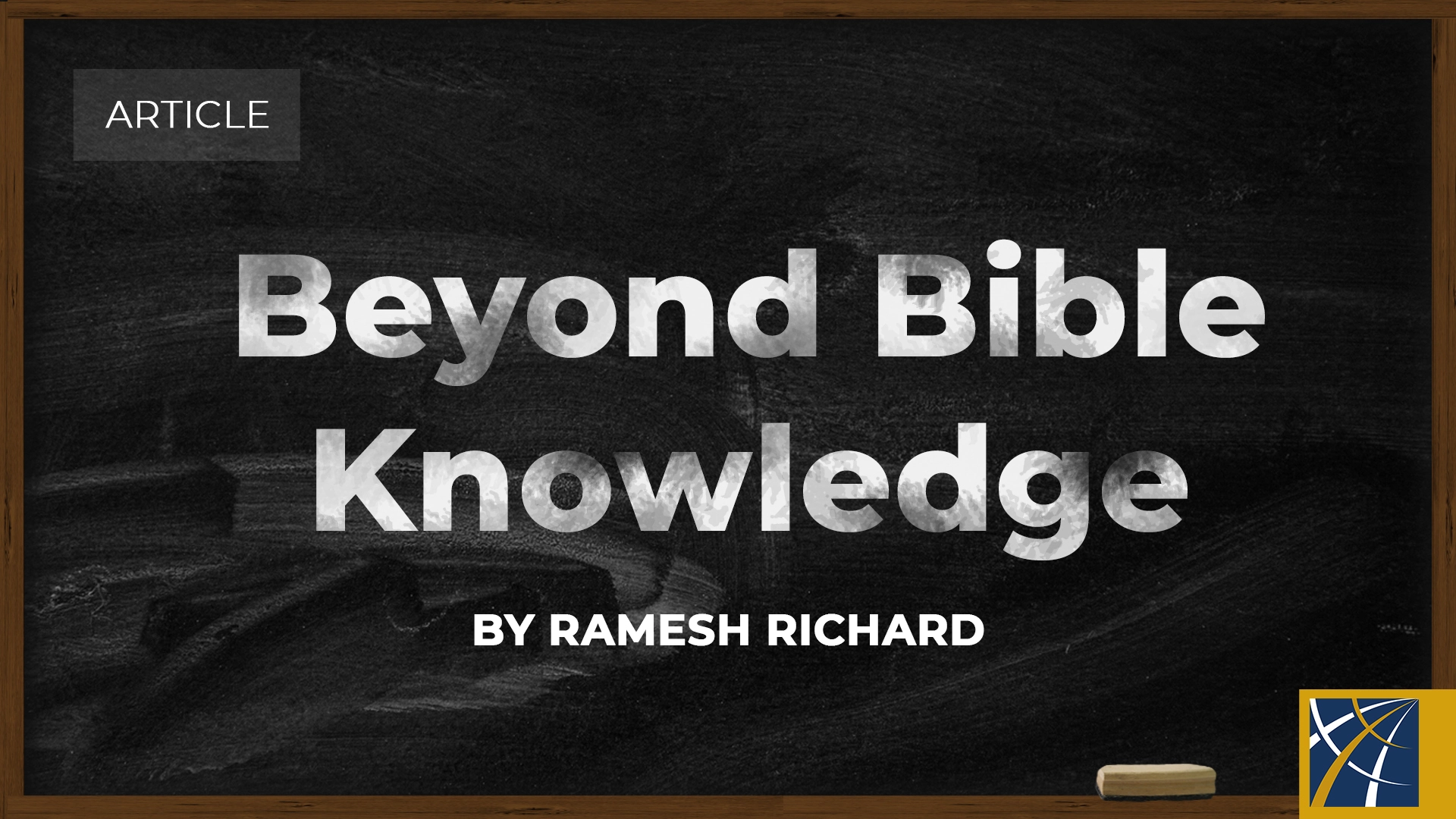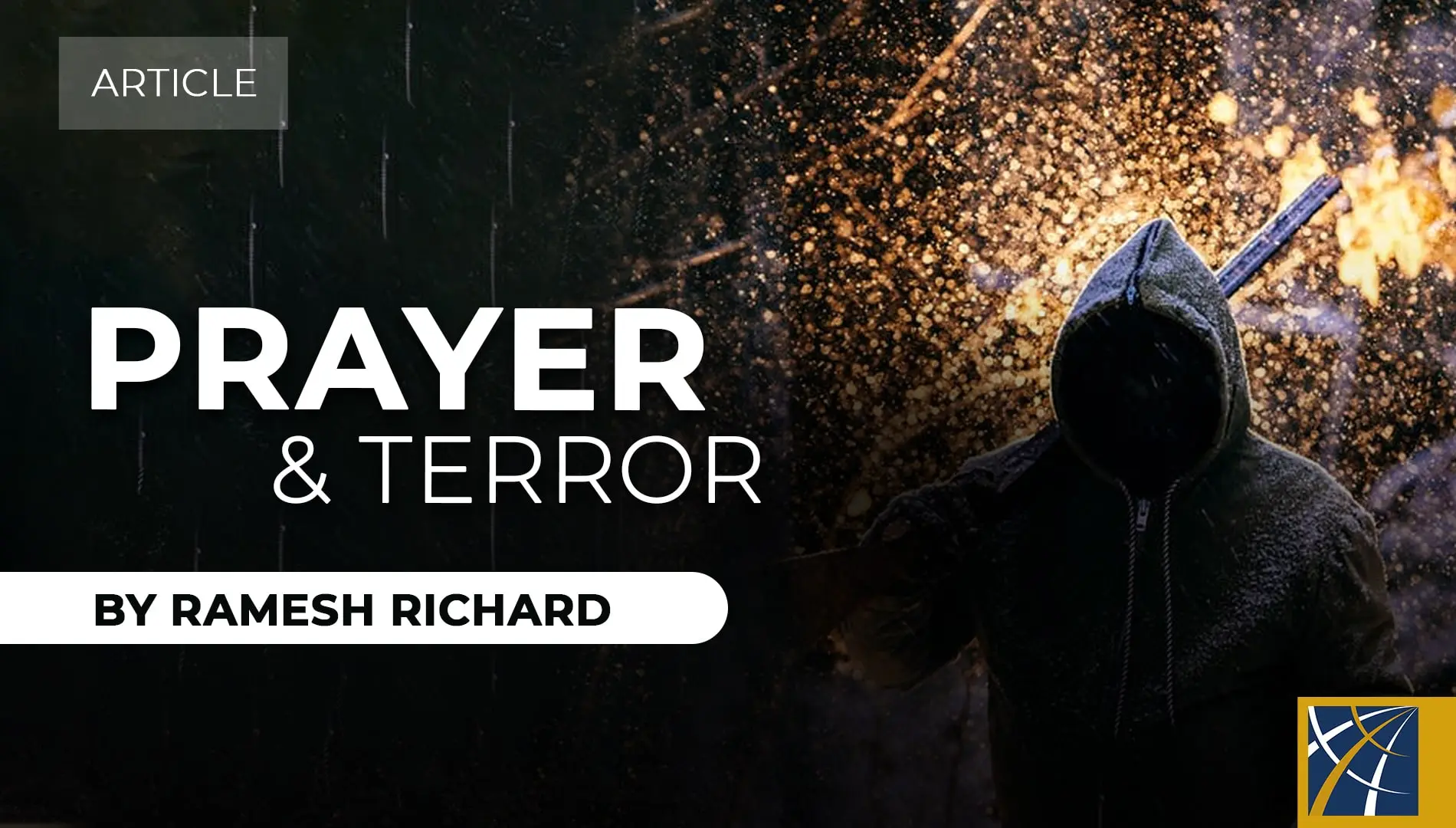by Ramesh Richard
A global winter has set in all over the world at every level, in politics and economics. With the specter of death hanging about us, where can we go? Nowhere in the world is safe anymore. And the world as a group feels a deep sense of instability and insecurity. The global contagion has engulfed all reality and leaves nature and nations in chaos. What should we do?
Chaotic upheaval in nature seems beyond our ability to predict.
Chaotic upheaval among nations is difficult to control.
Only One—one above diseases and destinies, nature and the nations, time and space, economics and politics, societies and nations, people and things—can provide confidence in the face of uncertainty. And He is with us as “our refuge and strength.”
The words in quotes above are drawn from the first line of any Christian’s favorite psalm in times of tumult, Psalm 46. Though the kind and duration of distresses change, our feelings of insecurity during natural and national chaos change little over time. The psalmist’s words connect the macro-volatility and micro-turmoil of yesteryear to the fears and anxieties His people experience now in 2020.
And yet, the psalmist employs God’s names to encourage a settled confidence in the only bulwark—a nautical term for a solid wall of protection—during chaos:
- “God…Most High” (Elohim…Elyon) reveals His absolute control of reality.
- The “LORD of Hosts” (YHWH Sabaoth) personally commands all powers.
- “God of Jacob” shows His covenant involvement with His people.
No matter the century or the circumstance, the strategies for God’s people facing turbulent upheaval remain the same because God does not change. Consider two theological convictions and practical consequences from this psalm of corporate confidence.
Conviction #1
The Most High, the One above chaotic nature, is involved with His people as their refuge and strength.
The comfort and confidence generated by the “refuge” metaphor indicate an experienced preservation in addition to a mental assurance. Only One can adequately provide strength—even shelter—during circumstantial turbulence. If we look to any one/thing other than the Ruler of all reality for our refuge—whether economics, education or elections—we will trust the wrong object. No president, politician, priest or philosopher can sufficiently offer refuge and strength.
This God is a very present help. Not only is He ever present with His people in terms of time, He is present at the point and kind of need we experience. Whatever is the help we need is the kind of help He provides. Like a river, a moat of protection, He surrounds His people (v. 4). He integrally plants Himself inside His community as One of its own. God is in the midst of us as our insider-helper to end and begin each day (v. 5).
Consequence #1
Therefore, we shall not fear (v. 2a). This courage is not a “No Fear” slogan of irrational daring. Our confidence is grounded in the Most High, the LORD of Hosts (v.7), the One involved with His people at all times.
My father’s oft-cited legend carries well the point of this psalm. Frederick Nolan, running to escape persecutors and tiring to the point of exhaustion, slips into a cave to hide. Resigned to certain discovery by enemies, he watches a spider weaving a web across the cavern’s mouth. The pursuers, upon finding the opening, decide not to search the cave since they see the spider’s web intact. Emerging uncaught, Nolan exclaims,
“Where God is, a spider’s web is like a wall;
Where God is not, a wall is like a spider’s web.”
God is our refuge and strength; therefore, we shall not fear.
Conviction #2
The One above all chaotic nations is interested in His global glory. He will be exalted among the nations and in all the earth.
We pursue deep theological discernment in the middle of international conundrums. The psalmist asks us to “come and see” the works of the Lord (vs. 8). Cataclysmic confusion provides opportunity to perceive God’s doings, both now and into the future, when He will destroy false objects of trust, especially weaponry, around the world (vs. 9-10).
Consequence #2
Therefore we shall cease striving from anxiety and know that He is God. When we “come and see,” guess what? We can stop worrying about universal disturbances and go about fulfilling God’s plans for His own international exaltation.
Some use “be still and know that I am God” (vs. 10a) for resting, but we should not divorce this call to rest from His global purposes (vs. 10b—two parts of the same verse!) Actually, that command to cease striving originally went to God’s enemies. Of course, we too can “relax” (that’s a good translation) without resigning to fate, because a personal, transcendent, powerful and active God is bringing about His own glory on the earth.
The psalmist gloriously ends with both titles for the Most High One—the “LORD of hosts” and the “God of Jacob” (v. 11; cf. v. 7)—to assure us that God is involved with His people. He is with us and is our stronghold in all upheaval everywhere—and into its future resolution.
We, then, get to choose convictions which carry consequences: who, where and what is our refuge in chaotic times? If the people of God idolatrously choose wrong objects, as did the people of God in the Old Testament, God will remove His glory from them (e.g. Ezek. 8). Our fumbling attempts at security in the middle of instability will fail us now and forever.
If we choose the Most High, LORD of Hosts, the God of Jacob as our refuge and strength, we can relieve ourselves from fear and relax in His circumstantial control of history and geography, plagues and plights, markets and militaries, topography and demography.
So let’s make sure the God we are speaking about with confidence in the middle of chaos is the Most High One, the LORD of Hosts, the God of Jacob. The Lord Jesus Christ, “God with us,” applied this Old Testament hymn of confidence when He tangibly rose from the dead to claim universal authority over all reality (Matt. 28:18), commissioned global recognition of His leadership and teachings (Matt. 28:19-20a), and promised His continuous presence (Matt. 28:20b).
In 1529, German reformer and hymn writer Martin Luther based his majestic Ein Feste Burg ist Unser Gott (“A Mighty Fortress Is Our God”) on Psalm 46. The hymn connects the people of God to “the Right Man on our side,” our Lord Jesus Christ—“a bulwark never failing”— across the world, whether in century 1, 16 or 21.

